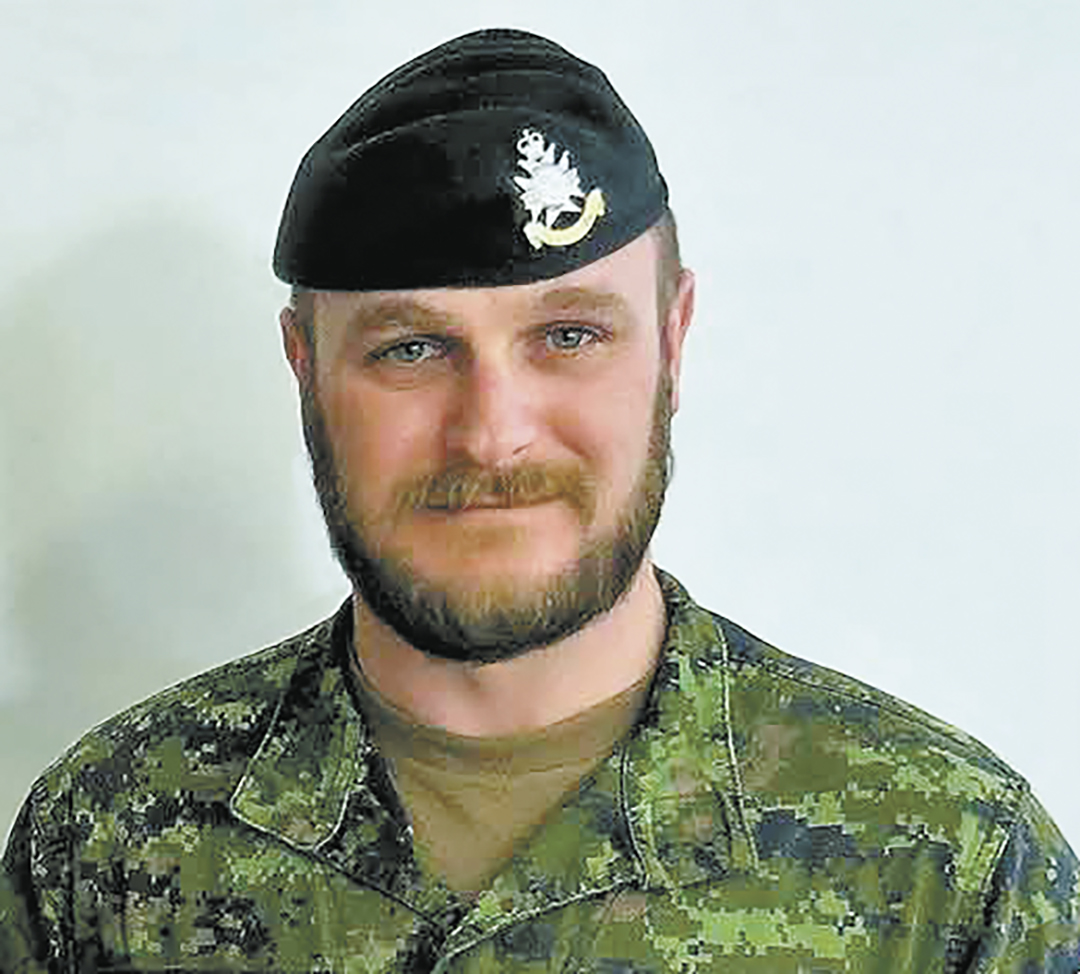THUNDER BAY – It was a unique mission for the Canadian Rangers when they were called upon to assist in a youth suicide crisis in northern Ontario in 2017.
The section of the Canadian Armed Forces Reserves is more often involved in patrolling the far north, or in search and rescue operations in remote locations.
Six members of the headquarters staff of the Canadian Rangers in Ontario have just been awarded prestigious Canadian Army commendations for their efforts in the suicide crisis.
One is Warrant Officer Dan Stortz of Mount Forest, an instructor with the Rangers.
He trains Rangers in five northern Ontario communities to respond quickly in emergencies such as missing persons.
In July and August of 2017, soldiers were dispatched to assist in the remote Oji-Cree First Nations communities of Nibinamik and Wapekeka, conducting around the clock patrols to prevent children from killing themselves.
There were no deaths while they were in the communities.
It was the first time a Canadian military unit had ever undertaken such an assignment.
Stortz flew to Wapekeka, about 600km north of Thunder Bay, where Jolynn Winter and Chantel Fox had died by suicide in January, and Jenera Roundsky had died in June. The three 12-year-olds were part of a suicide pact.
“We tried to get the youth involved in activities, to get them out having some fun, taking their minds off the events at hand,” said Stortz in an interview.
The Rangers helped with a Right to Play initiative, developed to use play to promote healthy living, healthy relationships, education and life skills in indigenous communities.
He said they worked with existing agencies and local groups to pool resources.
Stortz conducted night patrols and worked with senior team leader Master Warrant Officer Barry Borton and OPP officers to help bring the crisis under control.
“Through his unwavering dedication and exemplary leadership, Warrant Officer Stortz has been instrumental in ensuring the long-term safety of at-risk youth in Wapekeka,” states his citation.
About 40 young people were considered at risk of suicide, in a community of 400, and some had been flown out. First Nations youth take their own lives at a rate more than five times that of other Canadian children.
“We aren’t counsellors,” said Lieutenant-Colonel Matthew Richardson during the crisis. He is the commanding officer of 3rd Canadian Ranger Patrol Group, which commands the 630 Canadian Rangers in 27 First Nations across Northern Ontario.
“This isn’t a mental health response. We are there as a stop gap for the other government agencies to develop their response to the critical situation. We’re hoping to buy some time so other agencies can get there to help before there is another death.”
Adults in the community had become aware of a suicide pact the previous summer. The community immediately applied to Health Canada for funding to hire counsellors, but funding was not approved until after the deaths in January.
Roundsky died on June 13, several weeks after being sent back to Wapekeka First Nation from a specialized residential home, by Tikinagan Child and Family Services.
This was against the wishes of community leaders, according to a CBC report.
After her death, Chief Brennan Sainnawap declared a state of emergency and appealed for immediate help. The Rangers were part of the response.
The commendations to the six soldiers were presented by Brigadier-General Jocelyn Paul, commander of 4th Canadian Division, which commands the army in Ontario, and Grand Chief Alvin Fiddler of Nishnawbe Aski Nation.
“They are very significant awards and they should be worn with pride,” said Richardson.
Paul, a member of the Huron-Wendat First Nation in Quebec, is the highest ranking indigenous member of the Canadian Armed Forces.




